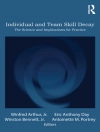Bringing together international academics and professionals who are actively researching and working in the field, this pioneering scholarly volume covers the issues faced by individuals with Autism Spectrum Disorder(ASD) in mid and later life.
Including a range of personal, academic and clinical perspectives, the book considers historical and contemporary perspectives on autism, including diagnosis, developmental outcomes and life course issues. Attention is given to medical, care and psychological issues that arise as people with ASD age, such as declining cognitive function and speech and communication issues. Family, community support, housing, advocacy, and socio-cultural considerations for older adults with ASD are also given careful consideration, and there are chapters on relationship and sexuality issues and on environmental design.
Tabla de materias
Introduction. Scott D. Wright and Amy Maida Wadsworth, University of Utah, United States. Part I: Overview. 1. Adults with Autism Spectrum Disorders: Past, Present, and Future. William Mc Mahon, Department of Psychiatry, University of Utah School of Medicine, United States, Kristina Cottle, University of Utah, United States, and Megan Farley, Waisman Center, University of Wisconsin-Madison, United States. Part II: Biosystem. 2. Genetic, Epigenetic, and Environmental Issues. Hilary Coon, Department of Psychiatry, University of Utah School of Medicine, United States, Christopher Gregg, University of Utah School of Medicine, United States, and Amanda Bakian, Department of Psychiatry, University of Utah School of Medicine, United States. Part III: Chronosystem – Historical, Contemporary, and Personal Perspectives on Aging with Autism Spectrum Disorder. 3. Ability Improves with Age. Temple Grandin, Colorado State University, United States. 4. Laying the Groundwork: How to Honor Autistic Essence Toward the Betterment of Society. Judy Endow, Common Threads Family Resource Center, United States. 5. Ageing with Autism: Improving Health, Improving Rights. Michael Baron, National Autistic Society, United Kingdom, and Saskia Baron, United Kingdom. 6. Aging and Autism Spectrum Disorders: Experiential and Social Perspectives. Digby Tantam, Fellow of the Royal College of Psychiatrists, United Kingdom. Part IV: The Person – Aging and the Aging Individual. 7. Ageing in People with ASD: Liaison Old Age Psychiatry Perspective. Elizabeta Mukaetova-Ladinska, Institute of Neuroscience, Newcastle University, United Kingdom, and Mick Coppock, Tyne and Wear NHS Foundation Trust, United Kingdom. 8. Challenges for Speech-Language Pathologists Working with Older Adults with Autism. Pamela A. Smith, Bloomsburg University, United States. 9. Autism and Age-related Cognitive Decline. Hilde Geurts, d’Arc (Dutch Autism & ADHD research center), University of Amsterdam, the Netherlands. 10. Diagnosis and Assessment of Autism in Later Life. Bas van Alphen, Free University of Brussels, Belgium, R. C. Oude Voshaar, University Medical Center Groningen, the Netherlands, and Sylvia Heijnen, Mondriaan Mental Hospital, Department of Old Age Psychiatry, Heerlen-Maastricht, the Netherlands. 11. Clear Sailing: Aging Optimally on the Autism Spectrum. Bruce Parsons, Clinical Psychologist, United States. 12. Psychotherapy with Older Adults on the Autism Spectrum. Valerie Gaus, Private Practice, United States. 13. Ageing and Psychological Functioning in Autism Spectrum Disorder. Amanda Roestorf, Department of Psychology, City University London, United Kingdom, and Dermot Bowler, City University London, United Kingdom. Part V: Microsystem – Aging and Dyadic and Family Issues. 14. The Pursuit of Happiness: Older Parents’ Views on Inclusion for their Adult Son or Daughter with Autism. Monique Hines, University of Sydney, Australia, and Susan Balandin, Deakin University, Australia. 15. It Takes a Village: Communication and Management in Caretaking for Adults with Autism. Ben Di Cicco-Bloom, Department of Sociology, Hamilton College, United States. 16. Sexual Wellbeing and Relationships in Adults with Autism Spectrum Disorder. Shana Nichols, ASPIRE Center for Learning and Development, United States, and Sandra Byers, Department of Psychology, University of New Brunswick, Canada. Part VI: The Mesosystem – Community Issues. 17. Aging Out and Aging Forward into the Community: Looking Ahead into the Journey of Growing Older with Autism. Denise D. Resnik, Southwest Autism Research & Resource Center, United States. 18. Design Empathy for Autism in Adulthood and Aging. A.J. Paron-Wildes, American Society of Interior Designers (ASID), United States. 19. How Can We Learn More About the Lives of Aging Adults on the Autism Spectrum and their Relatives? Jeremy Parr, Newcastle University, United Kingdom. 20. Housing is the Hub of the Wheel. Gregory and Ja Lynn Prince, Madison House Autism Foundation, United States. 21. Community Support Needs of Adults with Autism. Valerie D’Astous, Karen Glaser, and Karen Lowton, Institute of Gerontology, King’s College London, United Kingdom. 22. Psychosocial Interventions and Community-Based Services for Adults with Autism in the United States: Understanding What We Know Now and Charting a Course for the Future. Lauren Bishop Fitzpatrick, University of Wisconsin-Madison, United States. Part VII: The Macrosystem – The Aging Experience and Social Policy-Advocacy. 23. Autism and Aging: Epidemiology and Demographics. Terry Brugha, Department of Health Sciences, University of Leicester, United Kingdom. 24. Listen to the Experts: Autistic Adults Tell us What They Need. Carol Povey, Centre for Autism, National Autistic Society, United Kingdom, and Cos Michael, Autism Age, United Kingdom. 25. Through the Glass Wall: A Voice for Autism Advocacy and Social Policy. Robert Mac Bean, National Autistic Society Scotland, United Kingdom, and Stella Macdonald, Fife Council, United Kingdom. Part VIII: The Chronosystem Revisited – Future Directions. 26. Aging and ASD: Future Directions. Peter Gerhardt and Angela Rodriguez, The EPIC School, United States. 27. Current and Future Perspectives: How Do We Measure Up? Valerie Paradiz, Autistic Global Initiative, United States, and Xenia Grant, Global Regional Asperger Syndrome Partnership (GRASP), United States. 28. Quality of Life Outcomes of Aging Adults with Autism and their Families. Elizabeth A. Perkins, Florida Center for Inclusive Communities, University of South Florida, United States. Summary. List of Contributors. Index.
Sobre el autor
Valerie Paradiž holds a Ph.D. in German Literature from City University of New York and has taught German and writing at Bard College, Brooklyn College, and the State University of New York, New Paltz. She is the co-founder and director of ASPIE, the School for Autistic Strength, Purpose and Independence in Education and sits on the Board of Directors of GRASP, the Global Regional Asperger Syndrome Partnership.












